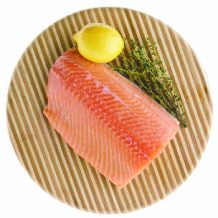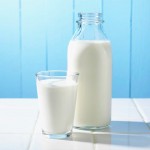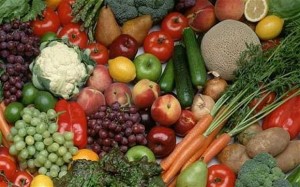Anti-Anxiety Diets

The World Health Organization reports that there are about 121 million people around the world suffering from depression and about 500 million suffering from stress of different kinds. There are several ways to avoid anxiety and reduce its intensity or impact on our body. The best recommended and the easiest way lies in our hands (literally!), it is the food that we intake. To put it in crisp terms, “We are what we eat”. If we place caution and attention to the type, variety, value and the quantity of what we intake and avoid certain kinds of food we can see marvels in our body’s functioning. This article discusses the food and its impact on our human body.
Water: It is called the elixir of life. For the brain to function properly it needs an adequate supply of water. Water helps reduce fatigue, effectively transports nutrients to cells, flushes out toxins from our body, and encourages a positive state of mind. It dilutes and neutralizes the excessive hormones and enzymes being secreted in your body. 8 -10 glasses of water are recommended per day.
Vegetables and fruits: Green leafy vegetables are low in calories and are high in many nutrients (including magnesium and vitamin K). They are good fooda for lifting your spirits. Vitamin B is a natural stress reducer and food sources containing it are soy beans, low-fat milk, yeast extract, liver, cereals and lean meat. It is best to eat vegetables and fruits in their natural form as processing them (heating/baking/cooking) can kill the useful enzymes. It is also recommended to have a variety of berries such as cranberries and raspberries as they contain flavonoids which promote a healthier heart. The flesh of grapes contains resveratrol which prevents plaque buildup in the arteries and and promotes a healthy heart that way.
 Milk:
Milk:
Drinking a glass of warm low-fat milk can reduce tension any time of the day. Tryptophan (contained in milk) is needed for the production of a brain chemical called serotonin, which is essential for calming effect and mood enhancement.
Acid vs. alkaline foods: Spicy foods (like chilly, pepper, turmeric, garlic), dairy products, pickles, tomatoes, eggplants, alcohol, caffeinated beverages (coffee, tea, colas) are acidic in nature and can reduce the absorption of magnesium in our body. Magnesium is the mineral that relaxes muscles and turns off adrenaline, so when it is in short supply; muscles stay tight, adrenaline levels are high and stomach acids cause indigestion leading to anxiety. Alkaline food like fruit smoothies are the best way to reduce the acid levels in the body. Salt reduces potassium levels and leads to higher BP levels and must be limited.
Complex carbohydrates like potatoes and whole wheat etc. take a longer time to digest and tend to make you feel full and content for a long time. This controls the blood pressure and sugar levels and reduces anxiety. Oats are important for the nervous system. Hazelnuts are a valuable healing food for the nerves. Honey dissolved in warm milk or with lime juice also has a calming effect on the nerves.
Sugar affects blood sugar and leads to mood swings, anxiety and also adversely affects the brain’s functioning. Limiting/avoiding sugary food intake (chocolates, fizzy drinks, cakes, pastries, sugar, etc) and high-fat (cheese, butter, chips, etc) food is always recommended.

Omega-3 fatty acids
A number of studies have linked anxiety, depression and a deficiency of omega-3 fatty acids. Foods rich in omega-3 fatty acids include walnuts, flax seeds, fish, shrimp and winter squash.
Other recommended food diets
Green tea contains compounds that aid digestion and weight loss, and produce antioxidants to fight against various illnesses including cancer. Alpha-brain waves are increased by its consumption which is said to relax our mind. The chamomile flower, which belongs to the sunflower family calms the central nervous system and induces a good sleep pattern.
Indian Ayurvedic herbs dating back to 1500BC have proven effects on the human body. Ashvagandha (White cherry) has hypnotic properties and acts as an anti-stress adaptogen. Similarly tagara (Indian Valerian), tulsi (Holy Basil), and (Shilajeet) mineral pitch are all found to have anti-stress effects, relax the mind, promote good sleep and act as good remedies for emotional troubles. Saffron is reported to have anti-depressant, anti-anxiety, anti-stress, antioxidant, anti-cancer, anti-heart diseases and sexually enhancing properties.

